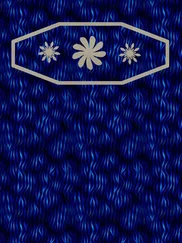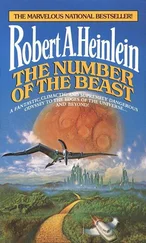Robert Heinlein - Expanded Universe
Здесь есть возможность читать онлайн «Robert Heinlein - Expanded Universe» весь текст электронной книги совершенно бесплатно (целиком полную версию без сокращений). В некоторых случаях можно слушать аудио, скачать через торрент в формате fb2 и присутствует краткое содержание. Жанр: Фантастика и фэнтези, на английском языке. Описание произведения, (предисловие) а так же отзывы посетителей доступны на портале библиотеки ЛибКат.
- Название:Expanded Universe
- Автор:
- Жанр:
- Год:неизвестен
- ISBN:нет данных
- Рейтинг книги:4 / 5. Голосов: 1
-
Избранное:Добавить в избранное
- Отзывы:
-
Ваша оценка:
- 80
- 1
- 2
- 3
- 4
- 5
Expanded Universe: краткое содержание, описание и аннотация
Предлагаем к чтению аннотацию, описание, краткое содержание или предисловие (зависит от того, что написал сам автор книги «Expanded Universe»). Если вы не нашли необходимую информацию о книге — напишите в комментариях, мы постараемся отыскать её.
Expanded Universe — читать онлайн бесплатно полную книгу (весь текст) целиком
Ниже представлен текст книги, разбитый по страницам. Система сохранения места последней прочитанной страницы, позволяет с удобством читать онлайн бесплатно книгу «Expanded Universe», без необходимости каждый раз заново искать на чём Вы остановились. Поставьте закладку, и сможете в любой момент перейти на страницу, на которой закончили чтение.
Интервал:
Закладка:
"I don't mean lunar ballistics," he continued, "I mean the much more interesting problem of its origin and history, the problem the younger Darwin struggled with, as well as my Illustrious predecessor, Captain T. J. J. See. I think that it is obvious that any theory of lunar origin and history must take into account the surface features of the moon - especially the mountains, the craters, that mark its face so prominently."
He paused momentarily, and Superintendent King put in, "Just a minute, Captain - I may be stupid, or perhaps I missed something, but - is there a connection between what we were discussing before and lunar theory?"
"Bear with me for a few moments, Doctor King," Harrington apologized; "there is a connection - at least, I'm afraid there is a connection - but I would rather present my points in their proper order before making my conclusions." They granted him an alert silence; he went on:
"Although we are in the habit of referring to the 'craters' of the moon, we know they are not volcanic craters. Superficially, they follow none of the rules of terrestrial volcanoes in appearance or distribution, but when Rutter came out in 952 with his monograph on the dynamics of vulcanology, he proved rather conclusively that the lunar craters could not be caused by anything that we know as volcanic action.
"That left the bombardment theory as the simplest hypothesis. It looks good, on the face of it, and a few minutes spent throwing pebbles in to a patch of mud will convince anyone that the lunar craters could have been formed by falling meteors.
"But there are difficulties. If the moon was struck so repeatedly, why not the earth? It hardly seems necessary to mention that the earth's atmosphere would be no protection against masses big enough to form craters like Endymion, or Plato. And if they fell after the moon was a dead world while the earth was still young enough to change its face and erase the marks of bombardment, why did the meteors avoid so nearly completely the dry basins we call the seas?
"I want to cut this short; you'll find the data and the mathematical investigations from the data here in my notes. There is one other major objection to the meteor bombardment theory: the great rays that spread from
Tycho across almost the entire surface of the moon. It makes the moon look like a crystal ball that had been struck with a hammer, and impact from - outside seems evident, but there are difficulties. The striking mass, our hypothetical meteor, must have been smaller than the present crater of Tycho, but it must have the mass and speed to crack an entire planet."
"Work it out for yourself - you must either postulate a chunk out of the core of a dwarf star, or speeds such as we have never observed within the system. It's conceivable but a far - fetched explanation"
He turned to King. "Doctor, does anything occur to you that might account for a phenomenon like Tycho?"
The Superintendent grasped the arms of his chair, then glanced at his palms. He fumbled for a handkerchief, and wiped them. "Go ahead," he said, almost inaudibly.
"Very well then - " Harrington drew out of his briefcase a large photograph of the moon - a beautiful full - moon portrait made at Lick. "I want you to imagine the moon as she might have been sometime in the past. The dark areas we call the 'Seas' are actual oceans. It has an atmosphere, perhaps a heavier gas than oxygen and nitrogen, but an active gas, capable of supporting some conceivable form of life.
"For this is an inhabited planet, inhabited by intelligent beings, beings capable of discovering atomic power and exploiting it!"
He pointed out on the photograph, near the southern limb, the lime - white circle of Tycho, with its shining, incredible, thousand - mile - long rays spreading, thrusting, jutting out from it. "Here ... here at Tycho was located their main atomic plant." He moved his finger to a point near the equator, and somewhat east of meridian - the point where three great dark areas merged, Mare Nubium, Mare Imbriwn, Oceanus Procellarum - and picked out two bright splotches surrounded also by rays, but shorter, less distinct, and wavy. "And here at Copernicus and at Kepler, on islands at the middle of a great ocean, were secondary power stations."
He paused, and interpolated soberly, "Perhaps they knew the danger they ran, but wanted power so badly that they were willing to gamble the life of their race. Perhaps they were ignorant of the ruinous possibilities of their little machines, or perhaps their mathematicians assured them that it could not happen.
"But we will never know ... no one can ever know. For it blew up, and killed them - and it killed their planet.
"It whisked off the gassy envelope and blew it into outer space. It may even have set up a chain reaction, in that atmosphere. It blasted great chunks of the planet's crust Perhaps some of that escaped completely, too, but all that did not reach the speed of escape fell back down in time and splashed great ring - shaped craters in the land.
"The oceans cushioned the shock; only the more massive fragments formed craters through the water. Perhaps some life still remained in those ocean depths. If so, it was doomed to die - for the water, unprotected by atmospheric pressure, could not remain liquid and must inevitably escape lit time to outer space. Its life blood drained away. The planet was dead - dead by suicide!
He met the grave eyes of his two silent listeners with an expression almost of appeal. "Gentlemen - this is only a theory I realize ... only a theory, a dream, a nightmare - But it has kept me awake so many nights that I had to come tell you about it, and see if you saw it the same way I do.
As for the mechanics of it, it's all in there, in my notes. You can check it - and I pray that you find some error! But it is the only lunar theory I have examined which included all of the known data, and accounted for all of them."
He appeared to have finished; Lentz spoke up. "Suppose, Captain, suppose we check your mathematics and find no flaw - what then?"
Harrington flung out his hands. "That's what I came here to find out!"
Although Lentz had asked the question, Harrington directed the appeal to King. The superintendent looked up; his eyes met the astronomer's, wavered, and dropped again. "There's nothing to be done," he said dully, "nothing at all."
Harrington stared at him in open amazement. "But good God, man!" he burst out. "Don't you see it? That pile has got to be disassembled at once!"
"Take it easy, Captain." Lentz's calm voice was a spray of cold water. "And don't be too harsh on poor King, this worries him even more than it does you. What he means is this; we're not faced with a problem in physics, but with a political and economic situation. Let's put it this way: King can no more dump his plant than a peasant with a vineyard on the slopes of Mount Vesuvius can abandon his holdings and pauperize his family simply because there will be an eruption someday.
"King doesn't own that plant out there; he's only the custodian. If he dumps it against the wishes of the legal owners, they'll simply oust him and put in someone more amenable. No, we have to convince the owners."
"The President could make them do it," suggested Harrington. "I could get to the President - "
"No doubt you could, through your department. And you might even convince him. But could he help much?"
"Why, of course he could. He's the President!"
"Wait a minute. You're Director of the Naval Observatory; suppose you took a sledge hammer and tried to smash the big telescope - how far would you get?"
"Not very far," Farrington conceded. "We guard the big fellow pretty closely."
"Nor can the President act in an arbitrary manner," Lentz persisted. "He's not an unlimited monarch. If he shuts down this plant without due process of law, the federal courts will tie him in knots. I admit that Congress isn't helpless, since the Atomic Energy Commission takes orders from it, but - would you like to try to give a congressional committee a course in the mechanics of infinitesimals?"
Читать дальшеИнтервал:
Закладка:
Похожие книги на «Expanded Universe»
Представляем Вашему вниманию похожие книги на «Expanded Universe» списком для выбора. Мы отобрали схожую по названию и смыслу литературу в надежде предоставить читателям больше вариантов отыскать новые, интересные, ещё непрочитанные произведения.
Обсуждение, отзывы о книге «Expanded Universe» и просто собственные мнения читателей. Оставьте ваши комментарии, напишите, что Вы думаете о произведении, его смысле или главных героях. Укажите что конкретно понравилось, а что нет, и почему Вы так считаете.











